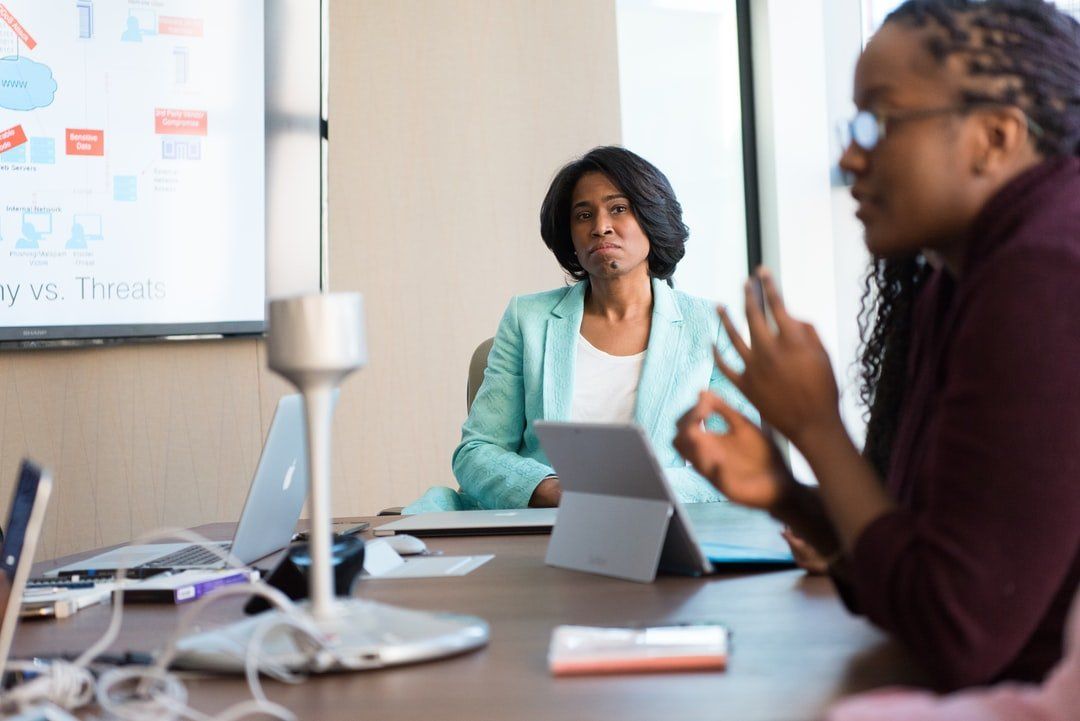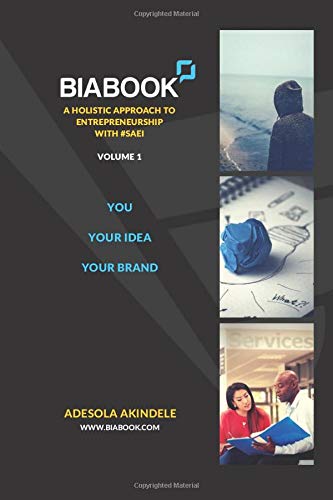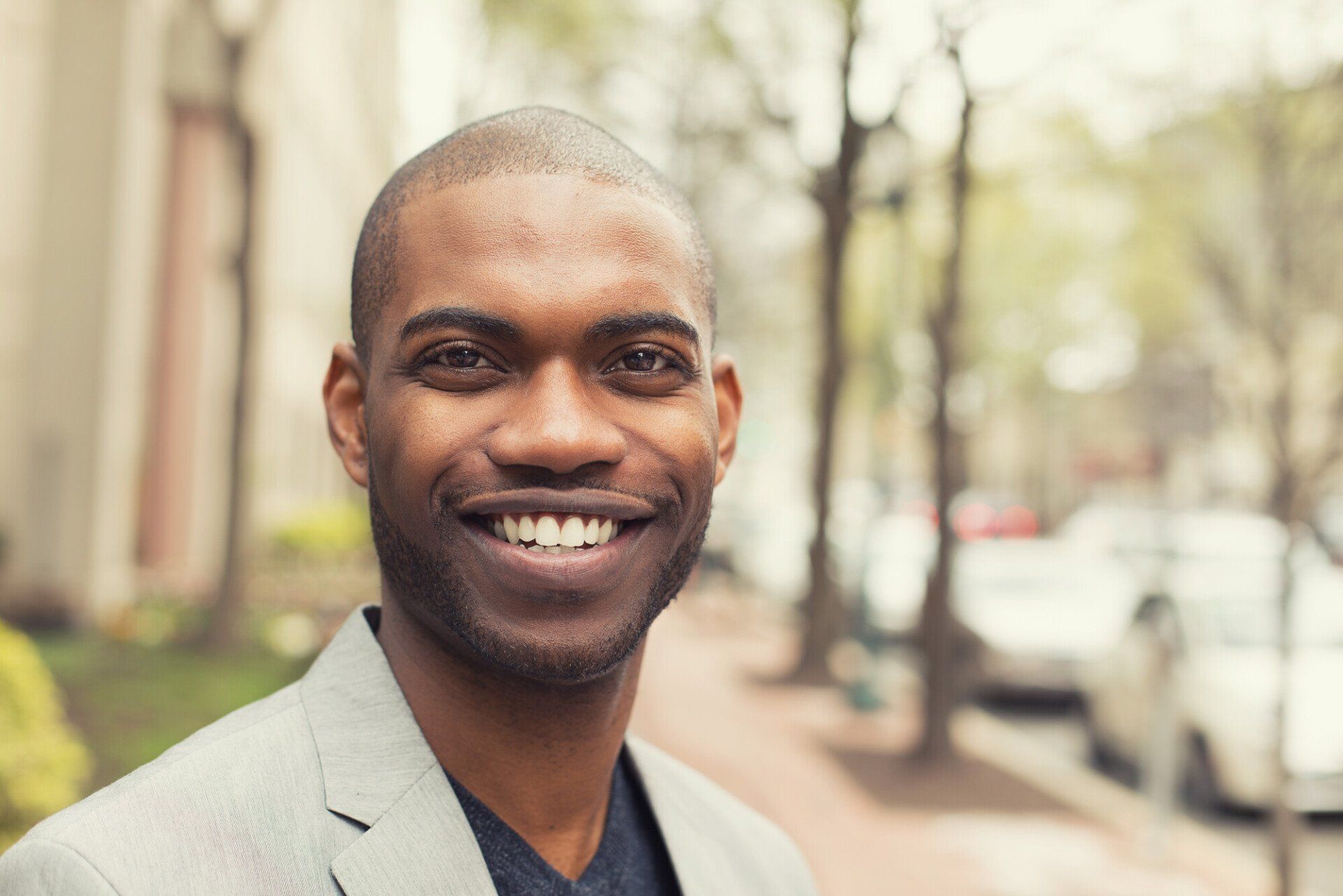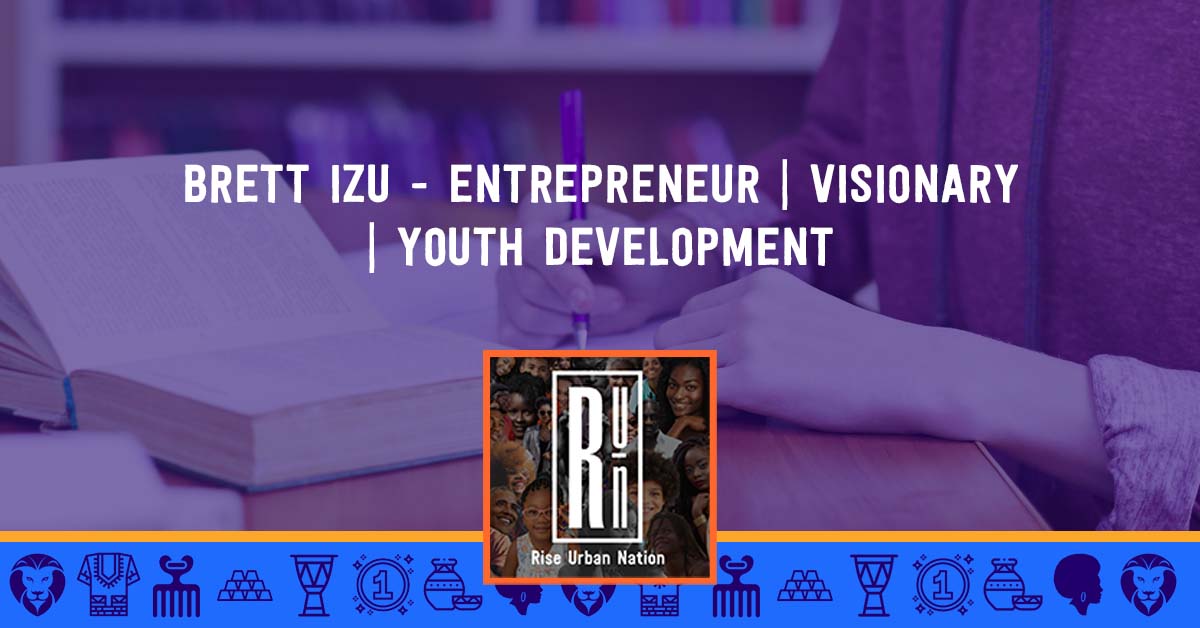Adesola Akindele - Author | Entrepreneur | Startup Coach | Equity Builder
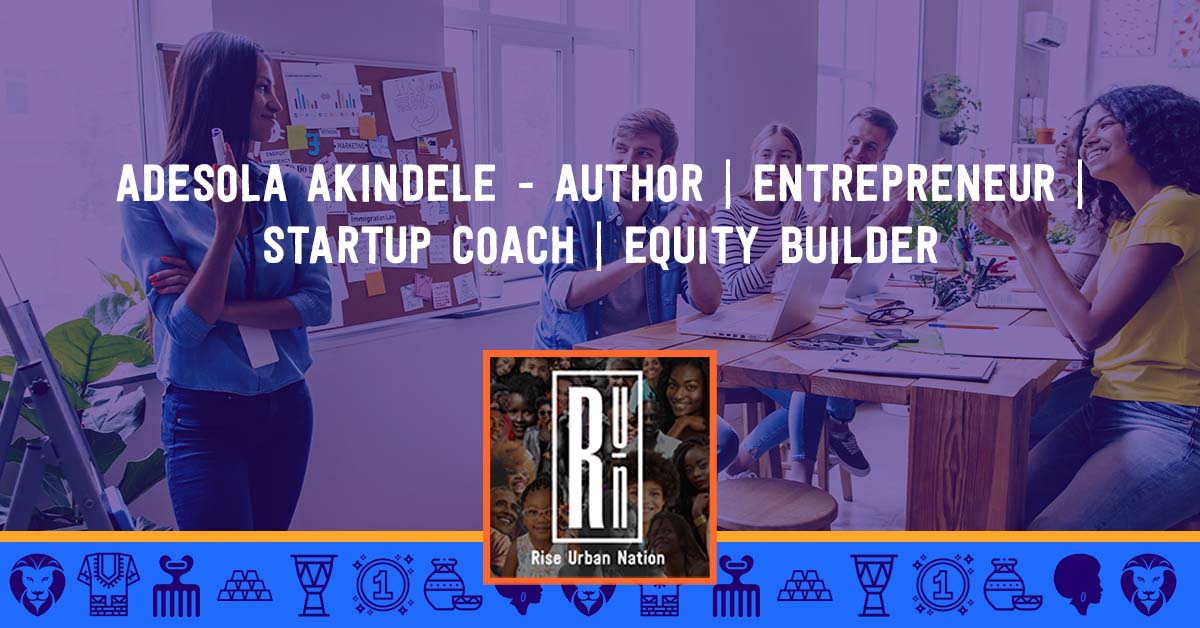
Entrepreneurship is the key to economic prosperity, especially for underestimated and under-represented economic groups. That’s what Adesola Akindele believes in and strives to achieve as a startup coach and equity builder. Adesola Akindele is a 20-year international serial entrepreneur and novice angel investor who is on a mission to help Black & African founders learn how to face their internal and external struggles to overcome the emotional plus socio-economic barriers that hinder economic success, equity, and ownership. Adesola is keen on Pan-African collaboration to foster an exchange of skills, ideas, and solutions. These collaborations are opportunities for startups and investors to learn first-hand from mistakes, processes, and resolutions to better products and services that help communities RISE to any challenge and thrive in any environment.
Connect with Adesola:
http://www.adesolaakindele.com/connect
We are currently surveying our listeners (or viewers) to learn more about you. Please take a few minutes and visit our website and click on the 'Listener Survey' link found on the home page. Thank you.
---
Listen to the podcast here:
Adesola Akindele - Author | Entrepreneur | Startup Coach | Equity Builder
I can't believe it, we’re finally here in 2021. I don't know what to expect out of this year. 2020 took us for a roller coaster ride. I'm ready for the journey. I'm not sure what it will bring us but hopefully, you get some sense of connection throughout this year. This is the first episode. In this episode, you get to meet somebody who's a dear friend and business partner of mine, Adesola. She's amazing. I first met her when I was at a startup weekend a few years ago through another good friend of mine, Luis Martinez, from We Tha Plug. I had an instant kinfolk connection with her. Several months later, we got the chance to do some work together.
Adesola Akindele is an international serial entrepreneur and novice Angel investor who believes that entrepreneurship is the key to economic prosperity, especially for those underestimated and underrepresented economic groups. As an economist, she was never shy of looking ahead at the bigger picture, examining the key metrics that differentiate success and failure in business ownership and leadership.
This woman is on a mission to help Black and African founders learn how to face their internal and external struggles to overcome the emotional plus social-economic barriers that hinder economic success, equity, and ownership. She is also keen on Pan-African collaboration to foster the exchange of skills, ideas, and solutions. These collaborations are an opportunity for startups and investors to learn firsthand from mistakes, processes, and resolutions to better products and services that help communities rise to any challenge and thrive in any environment.
In this episode, we talk a little bit about the journey of our meeting and some of the things that she's been working on including those tools and resources that help entrepreneurs and come in face-to-face with her own journey as well as being of Nigerian descent and being here in the States. Also, spending some time over in the UK, London, and so forth. I hope you enjoy this episode because I enjoy talking to her. Also, she is going to be joining me on several episodes as a co-host from time to time now that we are in business together. This won't be the first or last time you hear from her. Without further ado, Adesola.
---
We got a special guest in the building. I call her Sola. Is it okay if we call you Sola? We could give them the whole name, Adesola Akindele.
How you pronounce it is fine by me but I'm sure your family will not be happy.
Don't call us late for dinner. I'm up here thinking the first time I met you or I got introduced to you. It was Luis that introduced you to me. Is that correct? Where did we first meet?
It was Christiana. We've had been chatting via email with regards to speaking engagements. You were guiding me and you connected me to Tanya Hertz, a lovely lady. SDSU and San Diego Miramar. We first met months after we had connected and that was at The Blue Heart Foundation pitch event with young boys. I met Jasmine again because I'd met her before at the We Tha Plug event.
You were teasing me about my speaking setup.
I wasn't teasing. I was impressed because I was like, “He’s prepared.” Remember, I told you we only turned up with our flash drive and I was like, “Are we missing something? This guy has everything all together.” You're like, “I'm a professional.” I'm like, “I like that.” You’re wearing a dashiki, which struck me as well. I finally got to know that you’re connected to Nigeria and everything. You're brought up by Nigerians. You’re already cool. That moment, you became my brother immediately.
The key thing with business is time management and finding the right people to work with.
I appreciate that. One thing that I'm always impressed with about you is your ability to diversify your portfolios, your hustle, everything that you got going on. For the people who are now getting acquainted, tell us a little bit about who you are, what you're doing, and what you working on. Who is Sola?
She’s this quirky nerd. I'm an advocate for entrepreneurship. When you met me, I was looking at venturing into teaching or being a guest lecturer or speaker at universities. I had a book and I wanted to make sure I was able to activate it properly, make it required reading in some educational institutions. Besides that, I'm also an economist. Whenever you see that I have this whole macro way of thinking, it’s because that's my academic training. I'm a mom. I'm a Nigerian. I'm a British girl as well. There's a lot of size to me. I'm relaxed and mellow. I’m a hermit as well.
There’s a little bit of all that going on. She's a true economist because she’d be watching US news, British news, Nigeria news. There’s a video that we're going to talk about in the segment that we're going to break down because I have a feeling that's your economic standpoint. We’re breaking down that video you had sent to me earlier that I watched. Here's something I want to dive into quickly. A big reason why I do this and why we do this is because we want to give back.
One thing I noticed when I used to go around speaking to students is the identity of self, self-worth, and limiting beliefs that we have as Black people, at least for me, growing up with Nigerian culture in American society and learning about the two worlds and being in the middle of those two worlds. Also, learning how we perceive ourselves. We don't think that we can do certain things because of what is presented to us or we think there's only one path to do certain things. It’s like, “You're going to go be a doctor and that's how you are going to make money for the family.” I don't like blood. How am I going to be a doctor if I don't like blood?
I was supposed to be a lawyer just so you know. I tried doing law at GCSE, which is an exam that you take at high school in England. It was the first time in my life that I got a D. I'm like, “What is this? I know what I was writing.” We got feedback and I wasn't quoting the cases. I said, “What do you mean by that?” The woman said, “Sola, you got to know at least 100 cases per exam.” I love reading but not to that extent. How am I going to do this?
My mother is a lawyer. I said, “Mom, this is what this lady told me. This is what is going to be like. I don't want to struggle in any exam or any career.” She said, “Yes.” I said, “My memory is not like that.” I can study for an exam but studying 100 cases per example, per question, I said, “No. I can't read that many books. I know the way law books are.”
They’re boring. If you want to go to sleep, read a good law book.
I said, “I can skip from here to becoming a lawyer to the end. Let's start looking for another career.” I didn't tell my mother because I was trying to figure out how. It took me years. Fortunately, I stumbled on economics during my A-Levels and that changed the game for me. I read every economic book in my school's library. I was 100% in my examinations. It was a life-changing thing for me to see things in a different picture. My goal was to figure out what was wrong with Nigeria. I'm like, “How can we be the richest country in terms of resources and our people are still struggling? It didn't make any sense. Let's understand the mathematics behind an economy and running a country.” That's why I studied economics.
That goes back to the point I was trying to get to. First and foremost, shout out to your mom for pushing you in this direction. I didn't realize that she was a lawyer. I have to start reaching out to her and reviewing all my contracts now.
She taught me how to write them so I can review them for you. That's something she gave me. In fact, I'm writing a licensee agreement and she's behind me making sure I cross all the T's and dot all the I's. Any structured contract or anything, my mother is behind me. She always told me, “Get a lawyer. Make sure you have one to protect you. Make sure you have a lawyer review this.” It's part of my schtick anyway.
 Equity Builder: People of color in general are constantly at the lower part of the totem pole when it comes to building a wealth.
Equity Builder: People of color in general are constantly at the lower part of the totem pole when it comes to building a wealth.
The reason why our economies and the Black economy or people of color in general, we're constantly at the lower part of the totem pole when it comes to building wealth. I'm talking about that generational wealth that we often talk about. It’s because of that mindset that has kept us from growing and then also access to resources and capital and so forth.
When I tried to go to the schools, one thing I always skipped out on is I always forget to tell them, “I'm like you. I came from that.” I speak from this level now because it's where I am in life. Sometimes I have to go back. One question I want to make sure that I ask all my guests and share back to the young people that read this is, what was your first job growing up?
My first job was taking care of my young ones. As the oldest, that's your task. That's number one. I got pocket money so I said, “Being a good girl, I’ll make sure I get my full pocket money.” My brothers were not getting their entire pocket money. They will get half. One time, nada if they misbehave. I started my business before I started working. My mom used to own a salon. I watched how they did hair, how they did nails, and all that stuff. To make extra money, I used to do people's hair. This was probably maybe 15 or 16 years old.
At that time, I had started living in England. When I found out I was a British citizen, I was like, “Sayonara, people.” I finished my secondary education in England. I started my education, a part of it, in Nigeria. At sixteen, I went to a boarding house. During the two years there, people used to pay me to do their hair because we're Black students in the boarding house. It was Ken College in the heart of the garden country as they call it, Garden State of England.
My first paid job was in Paris. In England, you're encouraged to take a gap year after your A-Level. A-Level is two years after high school. You can do A-Levels, BTEC, the different forms of qualifications you can get. I went to a foundation, which is one year that leads you straight to university. I did two years of A-Level.
They say that A-Level is as hard as universities. It’s prepping you for that thing. Because I did A-Level economics, the first-year economics was relevant to me. It was the same stuff. That's how tough it is. I went to Paris to learn French. My first job was in Hill-Rom. Hill-Rom is a company that makes all these hospital beds and hospital equipment that has been used. My mom works in the hospital and I saw the Hill-Rom, I'm like, “I work for that company.” It’s my first job. Look at that. Thank you for asking that.
I like to tell people there are no mistakes in life, there are lessons learned. What are some things that you carry with you now that you learned from that first job or creating that first business? You could give a little bit of both. Start with the lessons you learned from creating your first business and then give me the lessons you learned from the jobs because you gave us two examples.
You can make money with your brain. I was in the heart of my educational years. I was studying so that I could be able to make money. I was like, “I'm already doing it now. What’s the big deal about stuff?” I never lost sight of finishing college or university. The first job I had, I wish I had absorbed the lesson of that. There are a lot of things that I've gone through or mistakes I've made. You got to pay the bills. A brainless job will cover the bills. It covers what you need to do so you can do what you want to do. I didn’t take that lesson with me.
There were moving offices. The whole time where I was living, the woman notice that I wasn't doing much. I said, “Because I didn't have that much cash with me, I always made sure that I only stayed around the school that I was in, in terms of the activities because that was paid for. My mother had paid for that.” They take an excursion and stuff. She’s like, “No, you need to have your own cash and stuff like that.” She got me a job in her workplace. I was packing their stuff so they could move. I helped them pack their office to move.
It was quite a lot of money. I used to get €1,000-something a month for that. It was a brainless job and it didn't require me to use my mind or think or anything. I was doing my stuff away from everybody. I got paid and I was able to do a lot of stuff with that. I was able to do more fun stuff in Paris. I’d hang out with my friends more and things like that. I wish I took that lesson with me but I didn't. I'm not going to say I regretted it because I learned the hard way but I still learned. Now I can teach people. Yes, I know you want to start a business but who's going to be covering your bills in between? You need a good six months to one year. Once a company can afford to pay you a salary, you can shuffle.
The whole thing about diversity is you're getting two points of view to make something better.
You use that mindset now in all of the ventures that you have. Tell me a little bit about the business pitches you have because I know you got a lot going on. Sometimes I can't even keep up with you.
I have a creative mind. My brain needs to keep working all the time. I don't mind devil’s workshop. For me, I've found a way of handling myself to manage my products and companies, keeping with the business's time management, and finding the right people to work with. Before, I would be doing different things and it would be me heading and leaving everything. It doesn't work that way anymore.
Let me start by telling you the businesses I'm in and then I'll tell you my positions in all of them. Chocolate & Cinnamon is a beauty company. That's a family business. It’s like how people have a farm or they have some property or something. During my millionaire journey, it occurred to me that I have to have a for-profit brand company and that was it. It’s something where I could sell eCommerce online. I looked for what I felt like everyone in my family was into and it was in beauty. It was anything we talked about that was a common point, it was either food or beauty.
I'm not going to start cooking anything. There are too many regulations there. We're going to go into beauty because I wanted something that we could all do together. That's how that company was formed. It was also a gift to my mom to retire. It's hard to get someone who's worked all their life to retire. I wanted her to have something that she could sink her teeth into and have fun. People always comment on our skin. People always comment on how young we look. I still get carded when I go buy alcohol. Can you believe that?
There’s a saying that they have in the US, “Black don't crack.”
With our youthful exuberance and everything, let's create a line based on what our grandma used to do. My grandma was big on natural beauty. She used to make our own body creams, hair creams, and face scrubs. We took some of the knowledge, looked for a manufacturer that was as close as possible to the formulas that we had, and then we started the brand called Chocolate & Cinnamon. We got nominated for a couple of awards. We're a finalist for one, The Black Beauty and Fashion Awards in England, which is awesome.
You go, girl.
That got me going. I was like, “I'm going to get into Boots now. I'm going to get into Superdrug.” It started simple but it's now moving along. That’s what you want for any company, it’ll organically grow and become successful. Everything I've learned is infused there. When I started that business, it took me three months to build it but I built it on the process and all. I made sure that everything was perfect, clockwork, the packaging, the fulfillment centers, all that kind of stuff.
This award we got was during COVID. We launched the brand with the CBD range during COVID. Our returns are 4 to 6 weeks because of COVID. You can imagine how frustrating it was for us where we went from selling every month to no sales at all. Fortunately, because cannabis was an essential product, everybody was looking for CBD stuff. Ours was a CBD luxury brand.
I want to tell people, don't let anything stop you. COVID is a moment for people to pause and re-strategize on their next move and plan the life that they want. Existing isn't enough. COVID is a break. I don't know when you're going to get the time where you're at home with your families or home to think, “Is this how I want my life to go? Does this company care about me? What do I want to do next? How do I want to serve others?” These are questions to ask at this time.
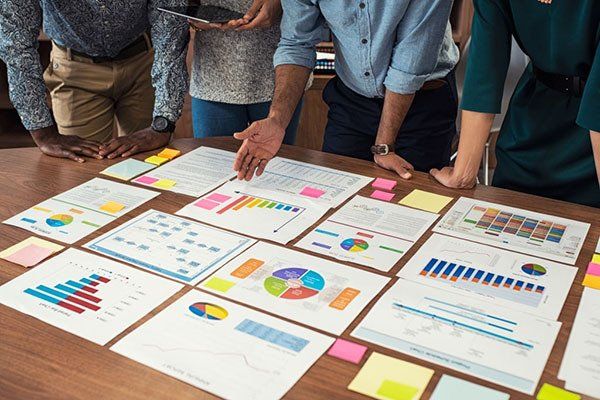 Equity Builder: COVID is a moment for people to pause and re-strategize on their next moves and actually plan the life that they really want.
Equity Builder: COVID is a moment for people to pause and re-strategize on their next moves and actually plan the life that they really want.
I love all of that.
The other one is More Media Tech. More Media Tech started in Italy as More in Nigeria. My ex was a graphic designer and he taught me how to design. Since that moment, that has been my bread and butter, designing brands, creating brands, helping people with their graphic design needs. It's evolved from More in Nigeria and More in UK. It then became More Media and then More Media Technology. This one, I own with somebody else. I have a partner and he's a Pakistani. I've known him for over ten years. He is an excellent designer. The two of us work well together. I bring in the fish and then he cooks the fish and then I deliver the meal.
That's a good game plan. I like that.
We have a team that works with us as well. We've scaled down a little bit now. Because of Fiverr and Upwork, there's a limit to what we can do now and charge the rates that we used to. For me, there are excellent designers on all these platforms. We even tell clients when they come to us, “Have you tried Etsy? Have you tried Fiverr for your logo?” The time it takes us to do that is not worth the money we can pay knowing that they know they can get it for less. It’s not only because we're in a country that requires high bills.
We decided to focus on what we're best at, which was startups. I combed my experience with entrepreneurs and said, “Startups need our help. They have a smaller budget. What can we do for them in essence?” We looked at different things. We did a package, which has your logo, website, and all of that but it was still wasn't working. We now decided to adapt and say, “What is it that an entrepreneur needs the most? Their pitch. They need a good-looking pitch and brand to show when they want to get investment from investors and want to raise capital.”
Fortunately, for me, at that time, I saw a gap. I was starting a VC firm, a private equity firm, with two other partners. I thought, “We need to have some collateral to make our founders look great.” We started with this magazine called The Hunt. We started with this pitch that was animated and things like that. It looked beautiful. They can watch it in two minutes and they're like, “I want to know more about this brand.” We call that product Vitch, Video Pitch. We've got a lot of requests for jobs for Vitch. We can pitch that to venture capitalists who are founders that they need to get investment for.
I love that because I was able to find a niche somewhere else, something new and can pass our skills. We deal with Software as service Products. We create people's apps, which is always fun. We stuck to the UI and UX side of it. We’re like, “Anybody who starts an app needs a team to continue maintaining it. It's best they built that team themselves. How it's going to look, we can help you get there.” That's what we did.
We stuck to the UI and UX for people's applications and then we stuck to Vitch. We had to scale our team for what it was before. We had the team up before. We scaled down to a smaller team of four. We re-strategize to make it small. There was a purpose for that. Me and my partner are going to be C-level executives in my new venture, which is Hygear. This is the first time I'm talking about Hygear publicly. Hygear is a hygiene tech company and we're creating products for third-world countries. This has been the best thing I've ever done because this was done with every I dotted and T crossed.
We're assembling a team of random Black people, engineers. We're able to attract an amazing advisor who used to work for Apple. She sold her company. She asked if we wanted her to put us on LinkedIn as a client. I'm like, “Absolutely. If people see that we’re connected to you, they would be more interested in our brand.” It’s pretty awesome. Here I am trying to get my team to be like, “Send me your buyers. I need to send this thing to Forbes Africa.” Every step of the way for this company has been a positive learning curve. I wish I could tell you the story of Hygear but I will another time.
We’re going to save that for another episode. That’s a whole other podcast in itself.
Failure is necessary in entrepreneurship and just life in general. Fail faster and sooner so that you can get to the lesson.
I would love that because it's a pathway home. I wanted to show that Africans and African Americans can work together. This is what we can create when we unite. We can do great things for Africa.
We are already living proof that Africans and African Americans work together because we've been doing it. Although I'm not your typical African American because I was raised by a Nigerian. I'm more Nigerian than I am African American but that's neither here nor there.
You're like a poster boy. I wish I'd known you earlier because you had some stories about how you were not accepted by either side. I'm not that person. I'm like a chameleon. I’m like, “You have a Nigerian name. I'm going to be your best friend.” In my years of being back and forth in the US, it's something I've noticed that we need to do. More people like you coming out are the people that we need.
I'm honored to know you. I get happy when I talk to you because you know both sides and you can show me, “This is what's going on on this side.” You know exactly how I react so you'll be like, “You already know how to package something for me to not freak out.” You take consideration of both cultures. People don't understand that.
That's the whole thing about diversity, you're getting two sides, you're getting two points of view to make something better. Two heads are better than one. There are so many sayings about things like that. The problem is there and the problem is solved. I'm like, “Why are people not seen that?” The reason why you're stuck is that you're not learning something from somebody else. Why are ethnic people, ethnic communities doing better in relation to those that are not? It’s because they have a system in place that they work as a unit, as a community. That's why they succeed more than others.
Before I jump to something else, I need to let everybody know about this last company, Sheba Venture Partners. We started wanting to be a VC firm. After tons of pitching and realizing that more or less people were probably laughing at us when we closed the door, we decided to switch to what we call a venture studio model. A venture studio model means we are founding investors. We co-run the company. You can start with the founder for about two years. We’re a co-CEO kind of thing. This allows the founder to gain confidence while working beside us.
It’s like an apprenticeship system. It also allows them to feel they have support, which a lot of founders do not have. Especially founders of color, they need that. Already, their family is always saying, “Go get a job.” Once you know that there are people who believe in your vision, know that you're not crazy, support you, fight for you, and advocate for you, that's what we're offering because that's what our community needs. That's all of it in a nutshell.
That's not enough. I love everything that you're doing. People don't realize there's an economic focus to it as it's building up the economy. The Black and Brown economy, that's been either overlooked, undervalued, underappreciated, or however you want to slice and dice it. Even with that, you’re diversity-focused because you're bringing a diversity of thought to the table. There's a diversity of different Black and Brown cultures. You’ve seen the world from your travels. Also, us working together, we've had plenty of conversations about that.
Diversity is key because I've seen it myself when Google reached out to me to do Startup Weekend and help promote it in our Black and Brown communities. Me and my team, that one Startup Weekend, we're a diverse group of individuals. We challenged each other. It was challenging. At the end of the day, we learned some valuable lessons. One is that everything that we argued about, we came to a solution with. It’s the same thing that these VC folks were grilling us on, “Did you think about this?” Yes, we did. We argued over it. There's the solution to that. I saw in real life how diversity helps.
What I want to jump into now is seeing the difference in different cultures and then coming here to America. It’s something that you gave me a video on. I want to touch on that topic briefly here. It’s something that's both dear to our hearts. There was a video you sent me highlighting the most educated groups here in America, the high-earning groups, and how there's a policy in play. I'm not sure if this is with Trump. The powers to keep certain individuals out of the US or from these high-earning classes. One of them was a Nigerian. Why do you think that Nigerians are IN that class of people, high-earners, that are also being discriminated against FOR trying to be kept Out of certain spaces and places?
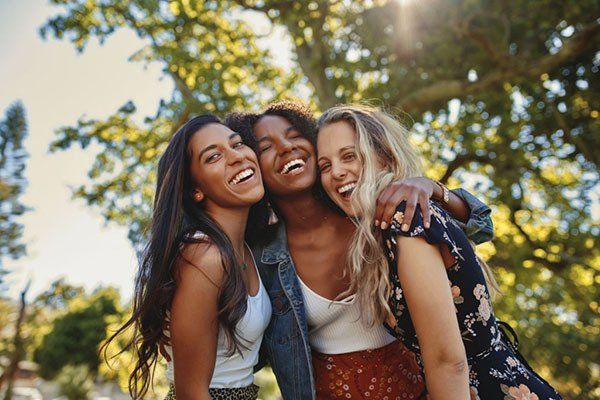 Equity Builder: Revenge is not our way. Nigerians don't do things like that. Africans don't do things like that.
Equity Builder: Revenge is not our way. Nigerians don't do things like that. Africans don't do things like that.The easiest way I can put this is to give you a brief scenario of my upbringing. In Nigeria, when you're in school around friends, it's a competitive spirit like no other. It’s not like someone who's into sports because that's usually what people hope to build in you. When they put you into sports, you're competitive. By being competitive you're always aiming for the best. That's it. Life from day one is that. Everyone is aiming for that A in your class. Everybody is aiming to be at the top of the class. Everybody is aiming to be at the first of the line when we're doing into house sports. Everybody's aiming to be the teacher's pet. Everybody's aiming for the highest point. This is from the moment we start school.
I finished elementary school at the age of 8 turning 9 that year. My birthday is in June, which is close to the end of the year. I was 8 and I turned 9 right as I finished elementary. I had to stay home for a few months because no school would take me. I skipped school for seven years because I was smart. That is the standard. That is normal to be the best that you can possibly be.
You're not going to go home and tell your friends you got a C. They ask you, “The person who got an A, do they have two brains?” You’re like, “No.” “Do they have 100 hands?” “No.” “They look like you. What is wrong with you?” They challenge you. Your parents challenge you. Your family challenges you to ask yourself, “Why didn't you get that A at an early stage, from day one?” They still allow you to be a child. You're still allowed in parents’ circles or something. Good luck to you trying to talk when parents or adults are talking.
I would not, “You are talking while I'm talking.”
This is with the culture, with everything, the food, and where we are. Nigeria is a unique country. We grew up with different religions working hand in hand. There are certain things that when I travel to the west and see it bothers people, I'm like, “I grew up with that. There's nothing wrong there.” That means that individual has an issue. It's not everybody in the group. Knowing that and having that spirit, it's not even about a choice, it's a natural thing to be the best person wherever you are. That’s how it is.
It's engraved in you.
We have this saying, “Naija no dey carry last.” We don't even know what that space looks like. At the top is A, A-, A-star, and A whatever. All you're hearing is the distinction and that's it. We talk about it within ourselves. Imagine having friends as teenagers. Yes, we talk about, “We’re going to this party.” People are like, “We have to read together.” We hang out to study. That's typical, standard Nigerian behavior. We’re joining study groups online or things like that.
Even though I watch my ex with the design, I taught myself how to learn other programs. I didn't have to go to a class. I had a system, “This is what I need to study.” Talk to people, find a mentor, and move on, that's the system. You can imagine coming from a country that supposedly we don't have much and has seen tons of opportunities to get to the top. Of course, you're going to take it. Of course, you're going to run that line. What we do is look at the top universities in that country, that's what we're aiming for. The way we see it, once you have the best education, every door is open to you.
Speaking of that, I remember in the study that they were saying that there's a high percentage of Nigerians graduating from Harvard. 25% of the black folks that graduated from Harvard are Nigerians. I was like, “How did that happen?” The Nigerians, out of the people of color, are the highest earners in the US. That's in the US. We’re not even talking about the wealth that is probably in Nigeria and Africa. We haven't had a chance to break that down. I'm pretty sure you got the numbers on that as well. It's that drive and that mentality that's ingrained in us.
It's a beautiful thing. When you're living it, it's not when you can't even get a seat. You get it now. You have to be the best. When everyone in the room is talking nonsense and then you open your mouth and say one thing and it crushes the room, why don't you want that power? To me, that is something. Have common sense. Sometimes it has to be ingrained and beaten to you. That's what we grew up with.
If you're not self-aware, you can't succeed. You can never identify your purpose, and then you can never figure out how to achieve it.
Taryell, with you, the reason why you and I get along so well is that you understand the way we are. You understand why we want to do things the right way, the best way. Giving back is part of our culture. We're generous people. Somebody's asking me, “What is it like to be Nigerian?” I said, “Are you trying to ask me how it’s like to be Black? To me, we’re forgiving.”
Were the most forgiving people. The light people better be lucky because we’re forgiving. If we wanted revenge, we'll be seeing something different in America right now.
Revenge is not our way. Nigerians don't do things like that. Africans don't do things like that. That's not our thing. If we get to that point, it means you've pushed us to the wall, to the brink of, “Enough is enough.” We would warn. Like our parents, when you're doing something, they will warn you at least five times.
Your parents warned you five times? I didn't get that many warnings. I got maybe 3 most before the belt or the shoe came at me.
It’s five for me. With my daughter, I’m trying to be nice to her.
With my parents, there's zero tolerance. If there’s one thing that you could do, you’ll get no warning. For me, they’d knock me on the head or slap. I remember my little brother threw a bat at my mom. She chased him down that hall so fast. We’re all like, “His life is over. Wait until dad gets home because dad wasn’t at home yet.” I felt for his life that day.
In an African household, you’re not worried about the person that's dealing with you at the moment. You're worried about the one that comes back from wherever the gun to and then that person reports. You don't have a voice there. The brother the person can add the salt, sugar, solution, pepper to make it sound so dire that you're going to get a double whooping. Being in an African house, you don't try something.
Innately, the reason why you notice that a lot of Africans follow the law is that there's no point. The person who brought you to this work can take you out. You've already seen that. Naturally, doing stupid things is going to lead you down the wrong path. Not all kids are like that. There are kids that didn’t even get to have a firm hand when they were growing up. Someone slacked along the way raising them. There are some parents who try and some kids are challenging.
Being raised African is why one is like this. One bad side is it leaves a little room for error. It leaves a little room for you to fail. When Africans fail at something, they don't know how to process it or handle it because they're not even allowed to experience that. That's one thing I've learned as an entrepreneur. Being an entrepreneur gave me that side of the experience that I needed to be where I am today. I needed to experience failure. Once I experienced the worst thing that could possibly happen, I'm not afraid of much anymore.
I wish I had this earlier because there are some mistakes I've made in my past. It’s because I didn't know what it would be like to be on the ground. Once I was on the ground, the only way was up. I had to beat myself out of staying down. That's another thing about upbringing. They tell you, “Shake it off.” The same thing you learn as an entrepreneur is to be quick on bouncing back from failure. We have that in our culture but they don't even allow you to get there to practice.
 Equity Builder: Anywhere when you have a situation where the younger ones are not even having a good quality of life as their grandparents did, then you know something is wrong.
Equity Builder: Anywhere when you have a situation where the younger ones are not even having a good quality of life as their grandparents did, then you know something is wrong.Failure is necessary and sometimes key, especially when you’re talking about entrepreneurship, business, and life in general. I tell people to fail faster, fail sooner so that they get to the lesson. The key is from every failure or mistake, you want to get the lesson out of it or try to figure out where the lesson is in it. Some lessons are harder to learn than others but that's why you want to get to it.
I can't have an economist on and not ask something about the economy. In the state that you see Nigeria in today or for Blacks in general, Africans living in the US, Africans living over in Africa, when you look at the economy, what do we need to do? Everybody is surviving right now. What do we need to do to thrive in this new economy?
This problem is something that's going on across all fronts, globally. We have a generation that is not passing the baton and that is a massive problem anywhere. When you have a situation where the younger ones are not even having a good quality of life as your grandparents did, then you know something is wrong and you know that your mindset hasn't evolved. It's not the mindset of the people that have an opportunity, the strength, the innovative mind, and the ideas to move a country forward or an economy forward. It's the people who still don't want to let it go. That is the biggest problem we have.
When I studied economics, one thing that we could not put a number on was the Black economy and corruption. You can't put a coefficient or anything on it. You can't calculate anything properly. The way it works in the federal state, especially Nigeria, once a new regime comes in, whatever the old regime did, they can wipe it off and start again. You can start making momentum over four years and if a new president comes in, you start again.
The way I see it is that there's a space you can operate that does not evolve the government, it does not evolve politics or any of those mannerisms that be. It’s the technology, which is why I'm a massive advocate for it. During COVID, what if we didn't have Zoom or Skype? How would we be operating? All the things that certain age groups did not like in the first place to even interact with, they are forced to do so now. For me, the way forward for your economy if it's struggling is to look at how tech can help it out of it.
Another thing is that, globally, we are all bowing down to one currency. It’s a situation where what you spend is supposedly controlled. If people don't understand money, what you spend is controlled. Their access to the global currency is controlled. They can trace everywhere it goes and where it's been spent, including your resources. For me, the biggest point is the fact that Nigeria is rich in resources and we still have people living below the global poverty line.
Another thing is $1 in Nigeria is worth a lot. You have to strike some balance. We have enough within the confines of our country to survive on our own. If we decided we don't want to import, we don't have to. Where are these talents that are supposed to build that industry? They're all abroad. They’re in the diaspora. That is another thing. If your country keeps on losing talent, you as a government need to ask yourself. You could be richer if you empower your own people.
I’ll give you a good picture. The head of the African Development Bank posted a video celebrating the 100 years or something. What he said struck a note for me. He said that we earn 43 billion from oil revenue, crude oil. I can’t remember for US dollars and Naira. Do you know how much Nigerians in the diaspora push back into Nigeria? Half of that, 22 billion. That is the economic power of us outside that country. That is just Nigerians. Can you imagine if our brothers and sisters that were taken from us hundreds of years ago decided to go back to Africa?
That's deep right there. We're not even going to talk about the money that they probably can't count, all the Susu, and all the other things that got those individuals over here to lift and build them up. That was pretty deep. I want to leave something tangible for the readers. Let's say I'm reading this podcast. I'm in Nigeria or I'm in my car in the US. I'm a person of color and I'm trying to figure things out. I'm at my dead-end job. I don't like it but I need to rebuild. I'm about to graduate high school. I don't know what I'm about to do in my life or I'm in college but I know this is not the right thing for me. I want to build something for myself. I want that something to be something meaningful. What would be the biggest words of advice to them and the next steps?
I have three things. My book centers on self-awareness and emotional intelligence for entrepreneurs. You need to know who you are. You need to know yourself. You need to become self-aware. If you're not self-aware, you can't succeed. You can never identify your purpose and then you can never figure out how to achieve it no matter what happens to you. Some people give up. I'm not one of those people.
Wherever you focus your energy on is what you're going to become.
I didn't give up and that's why I ended up on the ground because I refused to accept that my business was failing and I kept on going despite that and then I ended up on the ground. That was it. I had to get to the ground to say, “Stop.” Most people will not touch entrepreneurship again after what I went through. I did that. I'm now anchored in 3 to 4 businesses. Become self-aware, that's the first thing you must do.
Another thing to do that I've learned has to do with self-forgiveness. You need to learn how to forgive and stop blaming others for where you are at in life no matter who you feel responsible for. That becomes a crutch that you're relying on and you’re using it to say, “The reason why you're not doing something is that somebody did something to you or because something happened to you.”
I suffered from depression from age seven. You wouldn't know it when you meet me because I decided to beat it. I decided to ask myself and go deep within myself and say, “Why is this thing happening? What is the trauma that led to this starting?” I faked it. It wasn't easy but I did. I realized that I'd been making this an excuse for so long. The thing that’s supposedly called my depression is busy out there living their life and doing what they want to do. Do you see what I'm saying?
You need to forgive not just the person. Forgiveness is for the person that was oppressed. It has nothing to do with your oppressor, which is why people like myself, my community around the world succeed today because we decide to forgive. We have no choice. If we let that anger, hatred, or pain eat us up, we will be nothing. This is why love can Pan-Africans because that's all we do. Every day, every moment, every time you experience something, some hatred, you automatically let it go right there. If you let it eat you up, you become what you hate. Forgiveness is important and forgiving yourself.
The mistake I made was when I failed, I didn't forgive myself, and when I made errors that I shouldn't have. I remember there was something that happened in our family where I made a poor judgment on an investment and we lost a lot of money. I didn't forgive myself for a long time. It carried on but I remembered it was over three years ago that I finally did. I said, “If I keep on looking back at that moment, I cannot move forward.” That's what happens when you hold on to trauma, you can't move forward. Even when you do something, that will lead you back to that moment again. You need to work hard at things like that.
Trauma is real. Look for help, seek help. I had to find help and compassion, spiritual, mental, psychological, emotional. I found that in the life coach I got over three years ago. She helped me let things go. Let go. If something is holding you back, it's you. It's nobody else. You have to make that decision for yourself. You will see that the moment you do, everyone, everything, opportunities start opening towards that path. The reason you can't see that direction that you want to go is because you're stopping yourself and that's something I realized.
I had a conversation with my brother. I said, “You need to stop blaming the government for stuff. What do you mean? What does the government got to do with what you're eating right now? Nothing.” If you know you want to drive a Tesla, I go and say, “A Tesla costs this much money. What am I going to do with my skillset that I want to earn the money to get me that Tesla?” That's the way I think, “This is what I need to do,” and I work backward, solution-lead. If you keep on blaming everyone, that's your mountain of bricks. Are you building your own wall? I don’t understand that.
Sometimes people focus so much on the problem that they don't look for the solution. It's okay to recognize the problem but don't let that be your focus. Energy flows where energy goes.
I love that you said that. Wherever you focus on, wherever you direct your energy is what you're going to become. I started the millionaire journey years ago. I gave myself five years to become a millionaire. I started The #HTMAM podcast to do that. I documented everything that I’m doing. I was supposed to share financial peace and what people thought that was. I couldn't find many people to interview for that. The George Floyd boy thing happened. I realized that what I needed to share is equity, ownership, legacy.
The reason where we are at is that we do not have succession plans. We do not even think of succession planning when it comes to our families. It's all about now, this moment, the present. How can many of us be successful entertainers and sportsmen and women and nothing to show for it after a while? We're learning now that equity is key. The message I will give to anyone who’s at high school or anything is the moment you turn to the legal age to be able to acquire credit or land, that's what you should be looking at. Get your first plot.
I've been telling people to buy back the block. Why let everybody gentrify your hood when you could gentrify it yourself? That's a whole other conversation.
Build syndicates. That was something that Obama did. You don't have to be an accredited investor to invest in anything. Come together as a group. Look for people who have like minds and plan something. I have been this way since I was a kid. If you look at all my report cards, it’s the same thing my teacher said, it’s tenacious, ambitious. I knew I had to be this person but I didn't have a goal to direct myself to. Now I have goals. I'm not kidding. I have a financial goal for my millionaire journey. What I want is to build assets to pay me the salary I want to earn. That's what I'm doing. On another day, we can do that I'm writing a book and it's called How I Built My Portfolio with Zero Dollars.
That's going to be a best-seller right there. I can't wait to pick that one up.
Black people need to realize that they are assets. You are an asset, you the person. How are you going to milk yourself so that you can start making money and seeing the money?
Especially in this new age. Even you're working for an employer, you are an asset, you are a brand. That employer is choosing to hire your brand to be a part of their brand so that they can benefit from your asset and your brand. Keep that in mind. Anything that you do, make sure that it aligns with your brand. Make sure you're building your brand.
I want to leave with one thing, my biggest lesson as an entrepreneur. What I should’ve done in my twenties is I should have planned well for ten years to work so I could do what I wanted to do in my 30s. That is possible. They pick accountants, people in finance, right from school because that's when your brain is fresh.
Give yourself ten years because a 9:00 to 5:00 can't unless you get to a C-level position, an executive position. The fastest way to do that is in your own company. Give yourself ten years. Choose a career that's going to get you to a monetary place in ten years. Set up everything, your 401(k), your retirement plan from the moment you start working. Imagine if I had done that at the point of making money? Do all of that in that first ten years, hard grinding, rise to the top.
If you see that someone is still blocking your way, that is a moment to create a company or a space. Take advantage of the market so that you lead from that moment on. I always tell people that once you own a company, nobody's checking what degrees you have. All they see is the CEO. When you work, you learn the processes. That's a mistake I made. I didn't do that. I made a lot of errors in my business because of the lack of knowledge of the process and how things work in a company, the operations.
Now, I'm anal about any company I have in ensuring that there's a process in place. It’s like, “This is what we're doing to get to here. This is the sales plan. This is a sales goal. This is what marketing has to do to help us achieve this.” You need to learn that in an organization that already exists. Bury your head and do that. I became an entrepreneur right from the get-go. It made me the mentor I am today because I made a lot of mistakes. I can see when one is coming and I say, “We need to pull back and do this X, Y, Z.” I'm good at fixing things.
For the next generation, you can skip all my twenty years of errors by working somewhere for ten years. Get to the highest point you can and then start your own thing. Buy plots in between because that's what the job does, it gives you the credit to do things. That's something I didn't have. You can imagine the credit I had to build as a business to be able to do all the things I'm doing now. That's easy when you're working. When they see that the salary is coming in, you don't have to worry about money or putting food on the table. It’s important. If you can get that done, the world would change, the way we do things would change. Stop working until you die.
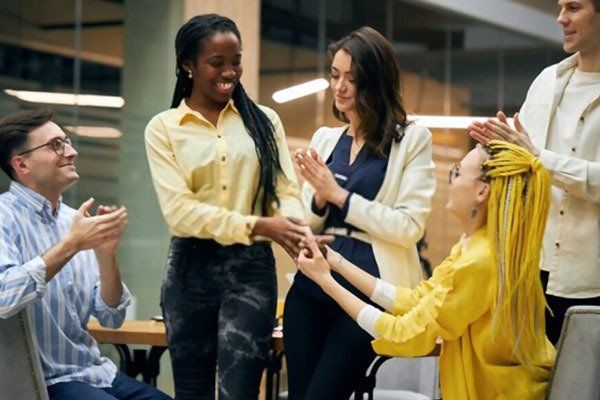 Equity Builder: Black people need to realize that they are assets. You are an asset. You, the person, how you milk yourself so that you can start making money.
Equity Builder: Black people need to realize that they are assets. You are an asset. You, the person, how you milk yourself so that you can start making money.That's not living life. That's not thriving. I love every single one of them. I'm sad that this is coming to an end because I'm pretty sure we could go on for hours. We got to stop somewhere. You gave us a lot to chew on. Where can they find you? Where can they find your journey, your podcast, connect with you business-wise? Give them all that information.
Everything about me, you can find on www.AdesolaAkindele.com/connect. You can find me on LinkedIn, look for Adesola Akindele. Reach out to me. Tell me that you heard me on this podcast and I'll know what direction you're coming from. I’m on Twitter as well. You can follow me. I could do better on Twitter if you follow me. You can usually see my thoughts if I reshare something or what direction I'm going. I tend to stick to where I'm at when it comes to what I post on social media but you can get a lot of motivational, inspirational stuff from me on LinkedIn, Twitter, and Instagram as well.
Don't worry. This is not going to be your last time learning from her. We're going to be doing some collaborations with her because she has some good content on entrepreneurship. We’re going to bring her back so we can get you that BIABOOK. That’s a teaser right there. We won't tell you what that is but it's coming.
Thank you so much, Taryell. It was a pleasure spending time with you.
Thank you for being with us. That's another episode of RISEpreneurs. Stay tuned. We’ll give you more information about how to connect with us on all the different platforms. I’m Taryell Simmons. Welcome to RISEpreneurs.
Important Links:
- Adesola Akindele
- We Tha Plug
- Chocolate & Cinnamon
- More Media Tech
- Sheba Venture Partners
- The #HTMAM
- www.AdesolaAkindele.com/connect
- Adesola Akindele - LinkedIn
- Twitter – Adesola Akindele
- Instagram – Adesola Akindele
- BIABOOK
About Adesola Akindele
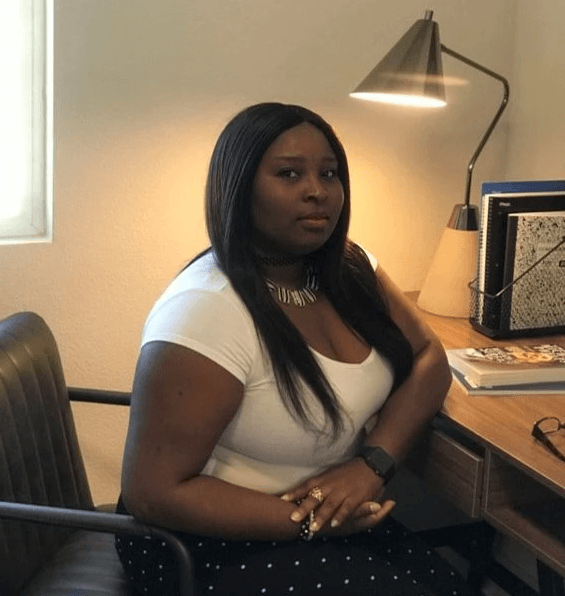
As an economic strategist and serial entrepreneur with 15 years of experience, I have developed a strong visionary sense in identifying unique business opportunities not easily seen by most. I enjoy being a catalyst for innovation, challenging corporate leaders to initiate growth within their organizations and communities. These skills I now translate in my daily professional life as a Strategic Marketing Partner in an International IT firm, Author of an entrepreneurship workbook, Startup Mentor, Venture Capitalist as well as a co-founder of 3 tech Startups. I enjoy working as an engagement vehicle to assist underserved audiences by helping them develop collaborative pathways to ownership as well as foster economic equality and financial wellness in their communities and beyond.

